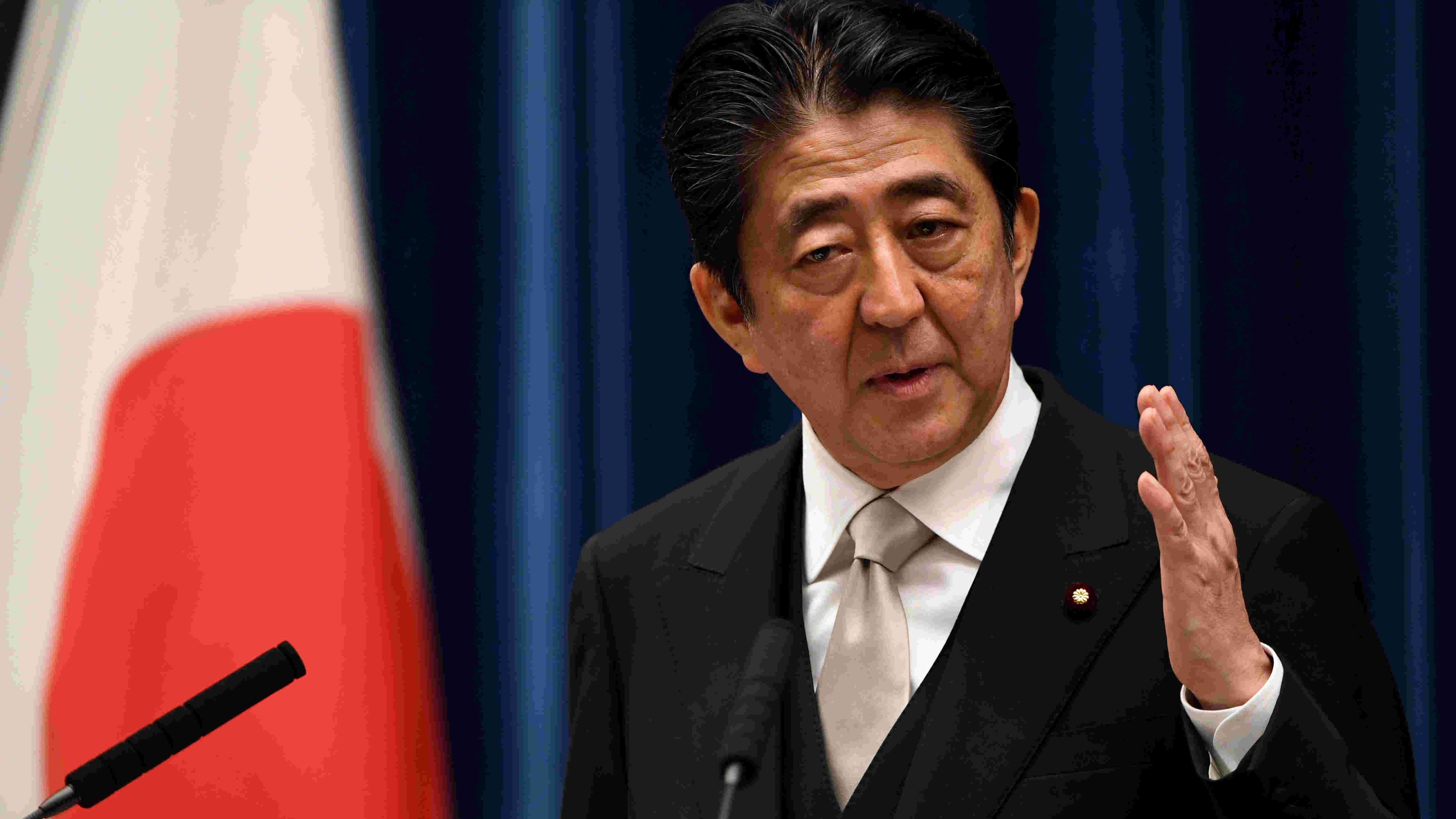Japanese Prime Minister Shinzo Abe, beset by scandals and falling support, opted for safe, experienced hands over fresh faces in a cabinet reshuffle on Thursday, but the changes may not boost his support to the extent he seeks.
Many ministers are being reappointed, such as Finance Minister Taro Aso, or are taking up posts they have held before, some in Abe's first 2012 cabinet.
One of the few exceptions is new Foreign Minister Taro Kono, known for both his willingness to criticize the ruling party and a frankness unusual for a Japanese politician.

Japanese Prime Minister Shinzo Abe speaks during a press conference in Tokyo, Aug. 3, 2017. /AFP Photo
Abe also appointed longtime ruling party policy veteran Toshimitsu Motegi as his new economy minister overseeing structural reforms, which are part of the premier's "Abenomics" stimulus policies aimed at reviving the stagnant economy.
"The economy remains our top priority," Abe told a news conference after the reshuffle, apologizing for the scandals he described as having harmed public trust in his policy handling. "We'll seek to end deflation by accelerating a virtuous economic cycle."
"I would like to express deep regret and apologize for creating strong distrust among the public over the scandals," he said.
However, opposition parties called for a deeper probe into the scandals, saying that a cabinet reshuffle won't erase the misconducts.
Abe's new Cabinet:
Taro Aso – Deputy Prime Minister, Finance
Yoshihide Suga – Chief Cabinet Secretary
Taro Kono – Foreign Affairs
Keiichi Ishii – Land, Infrastructure, Transport and Tourism
Katsunobu Kato – Health, Labor and Welfare
Hiroshige Seko – Economy, Trade and Industry
Masayoshi Yoshino – Reconstruction
Itsunori Onodera – Defence Minister
Toshimitsu Motegi – Economic and Fiscal Policy
Seiko Noda – Internal Affairs
Yoko Kamikawa – Justice
Yoshimasa Hayashi – Education, Culture, Sports, Science and Technology
Ken Saito – Agriculture, Forestry and Fisheries
Masaharu Nakagawa – Environment
Hachiro Okonogi – Public Safety
Tetsuma Esaki – Okinawa and Northern Territories
Hiroshi Kajiyama – Regional Revitalization
Masaji Matsuyama – Working-Style Reform
Shunichi Suzuki – Olympics
(Source: Reuters, Xinhua)
Related story:









